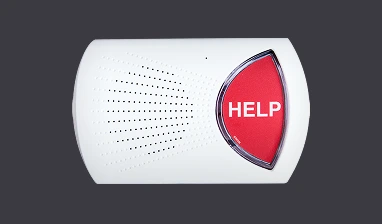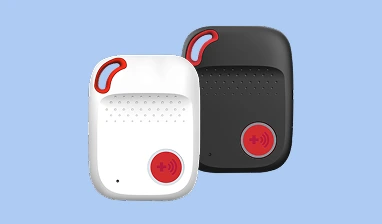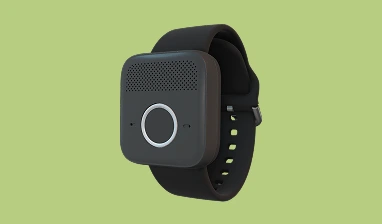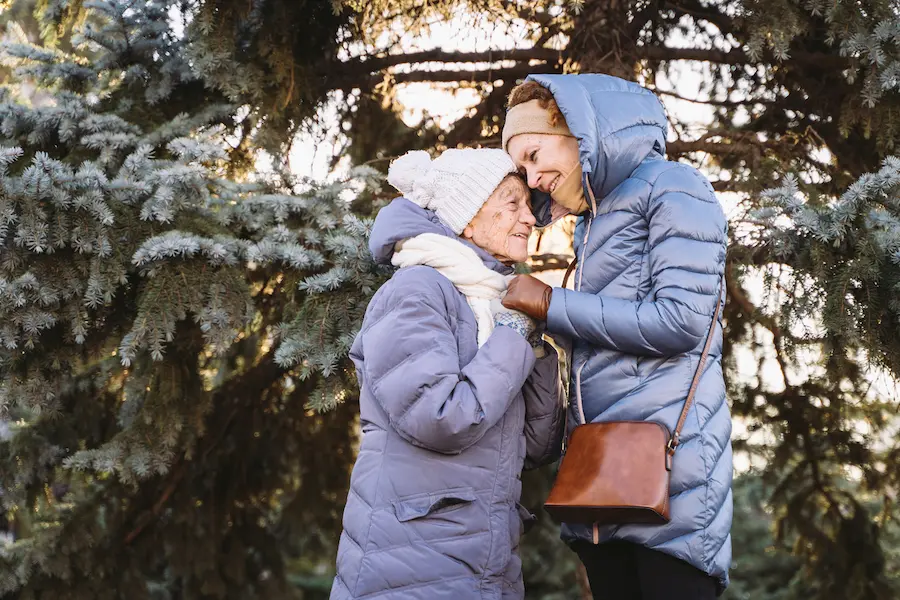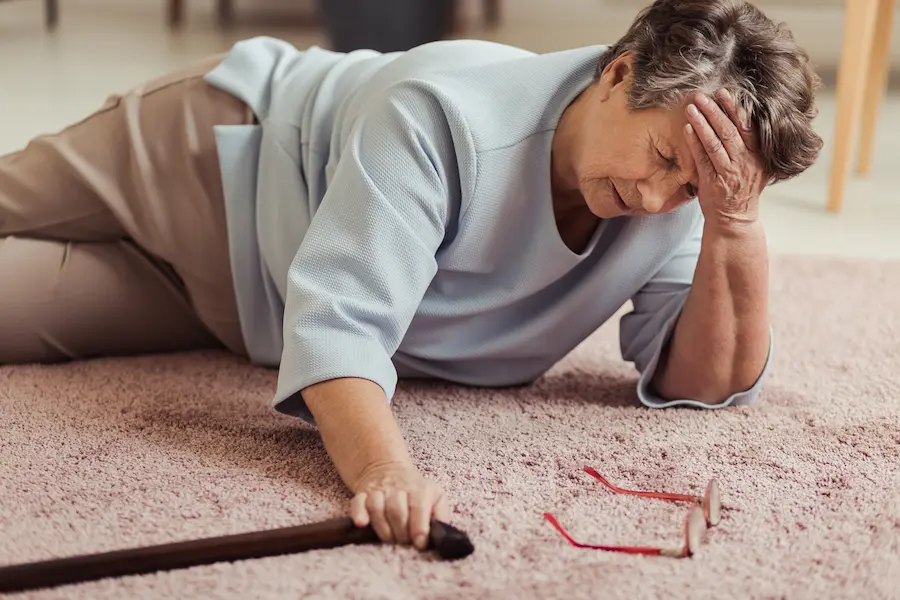Dehydration is a common issue that can affect anyone, but the elderly are particularly susceptible. Elderly people’s bodies have less water reserves due to decreased muscle mass and reduced kidney function. Our body’s signals to feel thirsty also decline as we age, which makes it easier for an elderly person to become dehydrated without realizing it.
Not everyone realizes how much it can impact overall health. One of the lesser-known effects of dehydration is dizziness, which can increase the risk of senior falls.
What is Dehydration?
Dehydration occurs when your body loses more fluids than it takes in. It is essential to maintain a balance of fluids in the body for it to function properly. Water is crucial for many bodily functions, such as regulating temperature, maintaining blood pressure, and aiding digestion.
Symptoms of Dehydration
The symptoms of dehydration can range from mild to severe and include:
- Thirst
- Dry mouth and lips
- Dark yellow urine
- Fatigue
- Confusion
- Dizziness
In severe cases, dehydration can lead to serious health complications. Recognizing these symptoms early can help prevent serious health issues.
Does Dehydration Cause Dizziness?
Dizziness is a sensation of lightheadedness or unsteadiness. It can make you feel like the room is spinning or that you might faint. But does dehydration cause dizziness? The simple answer is yes.
How Dehydration Leads to Dizziness
When you’re dehydrated, your blood volume decreases. This means there’s less blood circulating in your body, leading to a drop in blood pressure. Low blood pressure can reduce the amount of blood and oxygen that reaches your brain, causing dizziness.
Furthermore, dehydration affects the balance of electrolytes in your body. Electrolytes like sodium and potassium are essential for nerve and muscle function. An imbalance can lead to symptoms like dizziness, confusion, and even muscle cramps.
Dizziness Causes: Beyond Dehydration
While dehydration is a common cause of dizziness, it’s not the only one. Other potential causes include:
- Inner ear problems
- Low blood sugar
- Anxiety or stress
- Medications
- Circulatory issues
Understanding the underlying cause of dizziness is crucial for effective treatment. If you experience persistent dizziness, it’s important to consult a healthcare professional.
Symptoms of Dehydration in the Elderly
Dehydration can be particularly dangerous for the elderly. As people age, their sense of thirst diminishes, making them less likely to drink enough fluids. Additionally, certain medications and health conditions common in older adults can increase the risk of dehydration.
Dehydration Increases the Risk of Senior Falls
Dehydration can cause dizziness, which is a risk factor in senior falls. Studies show that dizziness can increase the risk of senior falls by over 60% and makes recurrent falls more likely. Approximately one in four citizens over the age of 65 falls each year. One-fifth of senior falls result in injury needing to be treated in the emergency room.
As one of America’s leading medical alert providers, we care deeply about preventing senior falls and help seniors who do fall to get medical attention quickly. It’s one reason why we offer automatic fall detection as an option for each of our medical alert systems.
Recognizing Dehydration in the Elderly
The symptoms of dehydration in older adults can be more subtle but may include:
- Dry skin that doesn’t bounce back when pinched
- Increased heart rate
- Low blood pressure
- Dizziness or lightheadedness
- Confusion or disorientation
Preventing dehydration in the elderly involves encouraging regular fluid intake and monitoring for signs of dehydration.
Preventing Dehydration and Dizziness
Preventing dehydration is the best way to avoid dizziness related to fluid loss. Here are some practical tips:
Stay Hydrated
- Drink water regularly, even if you don’t feel thirsty.
- Consume foods with high water content, like fruits and vegetables.
- Limit caffeine and alcohol, as they can contribute to fluid loss.
Monitor Your Health
- Pay attention to the color of your urine. Light yellow usually indicates good hydration, while dark yellow is a sign you need more fluids.
- Be mindful of how you feel. If you’re feeling dizzy or lightheaded, take a break, sit down, and drink some water.
Special Considerations for the Elderly
- Set reminders to drink water throughout the day.
- Keep a water bottle handy.
- Encourage regular check-ups with healthcare providers to monitor for signs of dehydration.
When to Seek Medical Attention
While mild dehydration can often be corrected by increasing fluid intake, severe dehydration requires medical attention. Signs that you should seek medical help include:
- Severe dizziness or fainting
- Rapid heartbeat
- Confusion or inability to concentrate
- Not urinating for eight hours or more
Reducing the Risk of Falling Injuries

A medical alert system with automatic fall detection can be a life-saving device for an elderly person at risk of falling. While they can’t directly prevent falls, they can greatly speed the time needed to get critical medical help.
Medical professionals call the first hour after a traumatic injury the “golden hour” because immediate medical care can prevent an injury from worsening, control complications like internal bleeding and shock, and increase the chances of survival and long-term recovery.
Stay Hydrated and Take Care of Your Health!
Dehydration is a simple yet significant issue that can lead to dizziness and other health problems if not addressed. By understanding the link between dehydration and dizziness, recognizing the symptoms, especially in the elderly, and taking steps to stay hydrated, you can maintain better overall health and prevent the discomfort associated with dehydration.
Remember, if you’re experiencing persistent dizziness or any severe symptoms, it’s crucial to consult a healthcare professional for advice and treatment.
